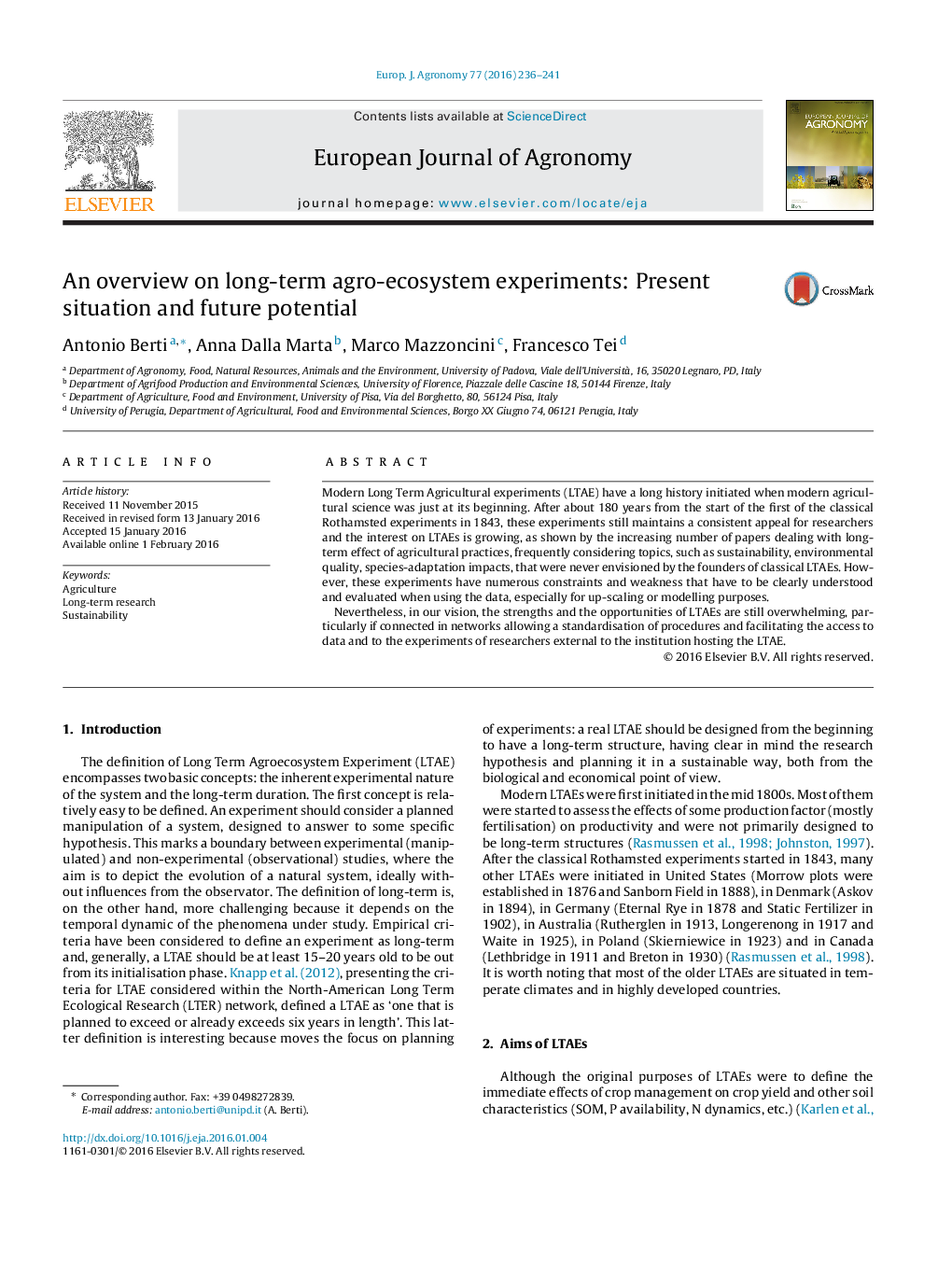| Article ID | Journal | Published Year | Pages | File Type |
|---|---|---|---|---|
| 4508725 | European Journal of Agronomy | 2016 | 6 Pages |
•After 150 years from their introduction, Long-term Agronomic experiments (LTAEs) still maintains a strong scientific value.•LTAEs are essential for understanding many of the problems facing farmers, ecologists and policy makers.•Nevertheless, LTAEs present various weak points, ranging from experimental design, to organisational and economic problems.•The structuring of networks, connecting representative experiments, seems to be the best alternative to exploit the potential of LTAEs.
Modern Long Term Agricultural experiments (LTAE) have a long history initiated when modern agricultural science was just at its beginning. After about 180 years from the start of the first of the classical Rothamsted experiments in 1843, these experiments still maintains a consistent appeal for researchers and the interest on LTAEs is growing, as shown by the increasing number of papers dealing with long-term effect of agricultural practices, frequently considering topics, such as sustainability, environmental quality, species-adaptation impacts, that were never envisioned by the founders of classical LTAEs. However, these experiments have numerous constraints and weakness that have to be clearly understood and evaluated when using the data, especially for up-scaling or modelling purposes.Nevertheless, in our vision, the strengths and the opportunities of LTAEs are still overwhelming, particularly if connected in networks allowing a standardisation of procedures and facilitating the access to data and to the experiments of researchers external to the institution hosting the LTAE.
